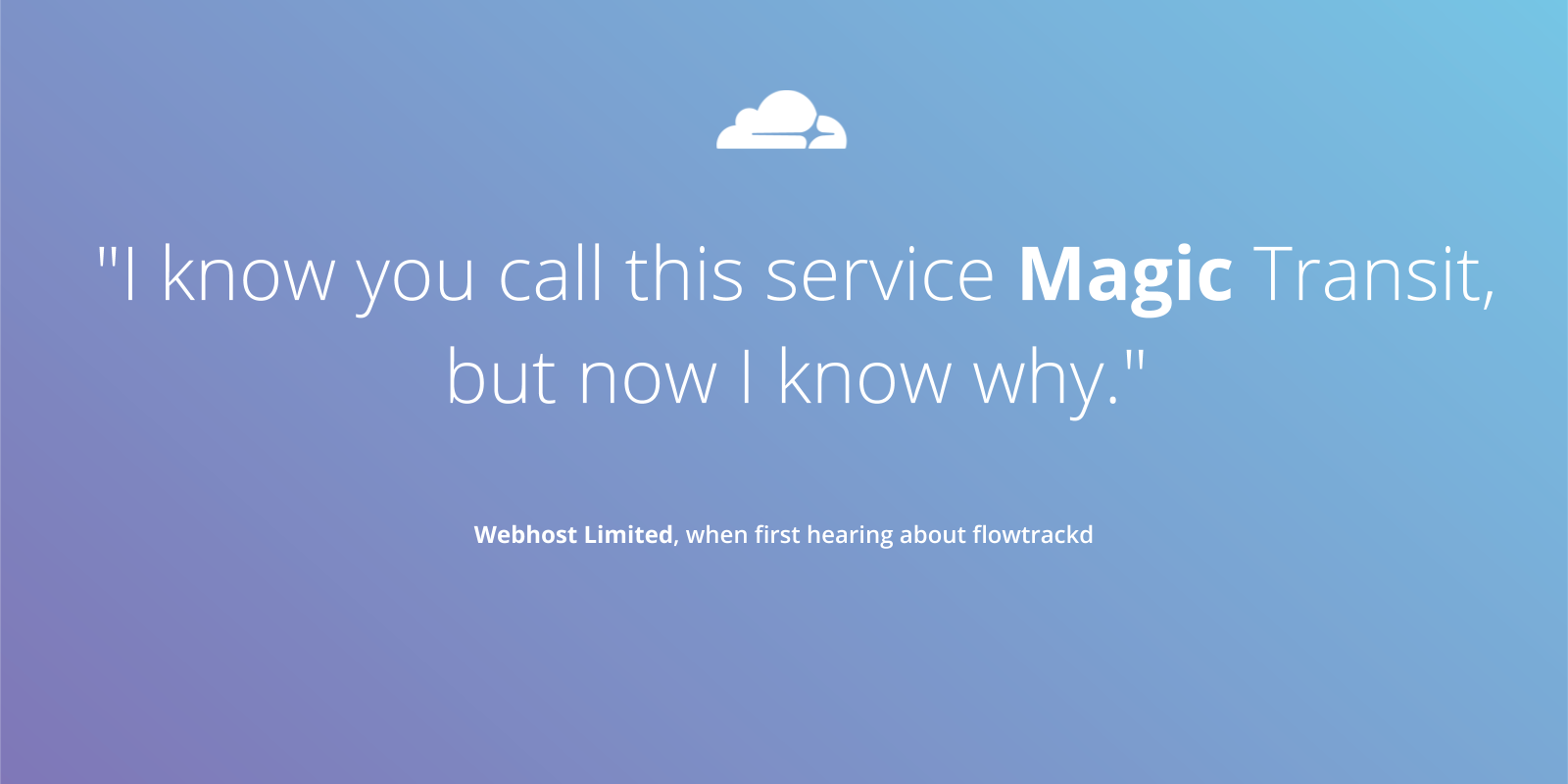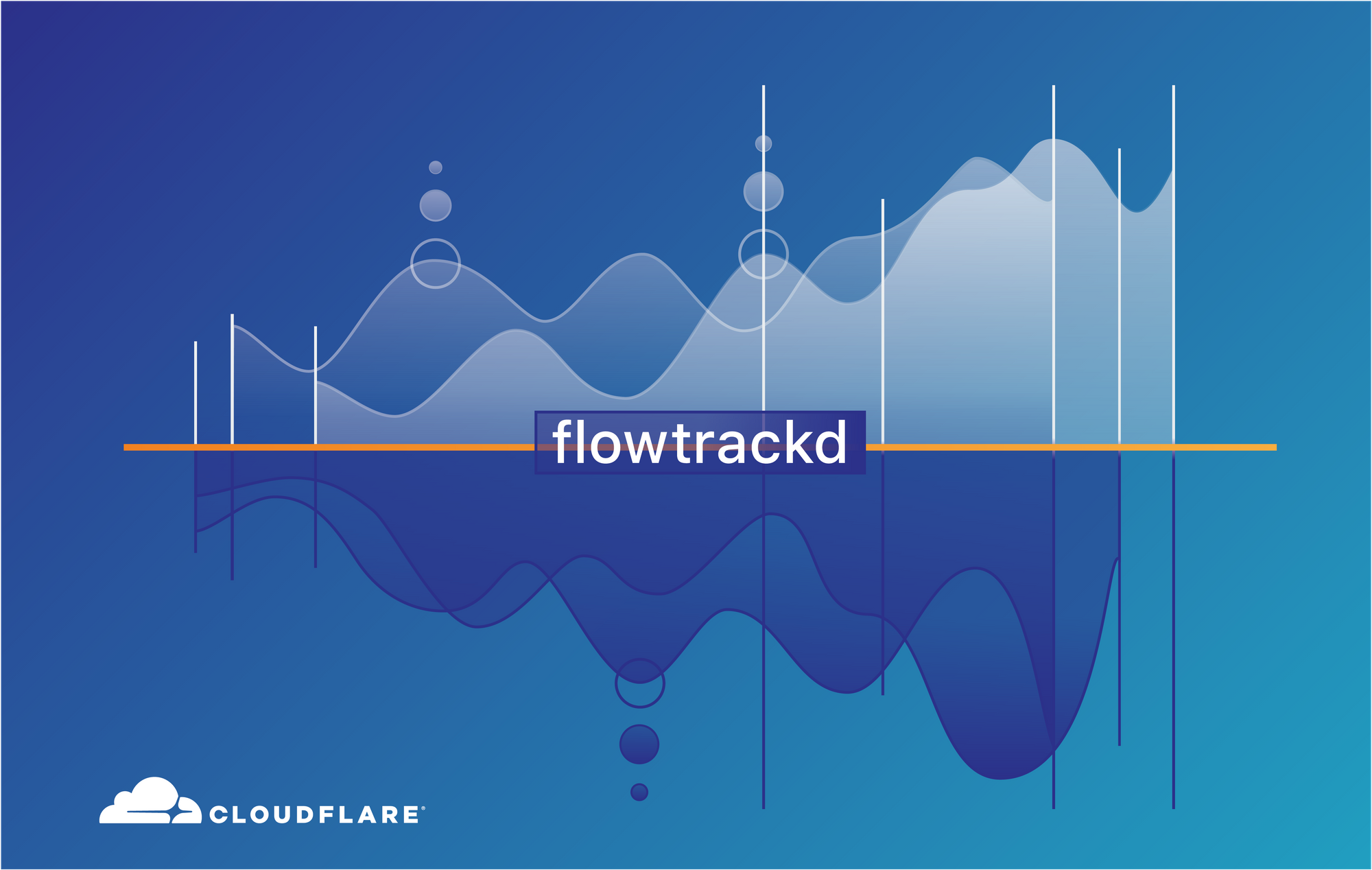Magic Transit is Cloudflare’s L3 DDoS Scrubbing service for protecting network infrastructure. As part of our ongoing investment in Magic Transit and our DDoS protection capabilities, we’re excited to talk about a new piece of software helping to protect Magic Transit customers: flowtrackd. flowtrackd is a software-defined DDoS protection system that significantly improves our ability to automatically detect and mitigate even the most complex TCP-based DDoS attacks. If you are a Magic Transit customer, this feature will be enabled by default at no additional cost on July 30, 2020.

TCP-Based DDoS Attacks
In the first quarter of 2020, one out of every two L3/4 DDoS attacks Cloudflare mitigated was an ACK Flood, and over 66% of all L3/4 attacks were TCP based. Most types of DDoS attacks can be mitigated by finding unique characteristics that are present in all attack packets and using that to distinguish ‘good’ packets from the ‘bad’ ones. This is called “stateless” mitigation, because any packet that has these unique characteristics can simply be dropped without remembering any information (or “state”) about the other packets that came before it. However, when attack packets have no unique characteristics, then “stateful” mitigation is required, because whether a certain packet is good or bad depends on the other packets that have come before it.
The most sophisticated types of TCP flood require stateful mitigation, where every TCP connection must be tracked in order to know whether any particular TCP packet is part of an active connection. That kind of mitigation is called “flow tracking”, and it is typically implemented in Linux by the iptables conntrack module. However, DDoS protection with conntrack is not as simple as flipping the iptable switch, especially at the scale and complexity that Cloudflare operates in. If you’re interested to learn more, in this blog we talk about the technical challenges of implementing iptables conntrack.
Complex TCP DDoS attacks pose a threat as they can be harder to detect and mitigate. They therefore have the potential to cause service degradation, outages and increased false positives with inaccurate mitigation rules. So how does Cloudflare block patternless DDoS attacks without affecting legitimate traffic?
Bidirectional TCP Flow Tracking
Using Cloudflare’s traditional products, HTTP applications can be protected by the WAF service, and TCP/UDP applications can be protected by Spectrum. These services are “reverse proxies”, meaning that traffic passes through Cloudflare in both directions. In this bidirectional topology, we see the entire TCP flow (i.e., segments sent by both the client and the server) and can therefore track the state of the underlying TCP connection. This way, we know if a TCP packet belongs to an existing flow or if it is an “out of state” TCP packet. Out of state TCP packets look just like regular TCP packets, but they don’t belong to any real connection between a client and a server. These packets are most likely part of an attack and are therefore dropped.
 Reverse Proxy: What Cloudflare Sees
Reverse Proxy: What Cloudflare Sees
While not trivial, tracking TCP flows can be done when we serve as a proxy between the client and server, allowing us to absorb and mitigate out of state TCP floods. However it becomes much more challenging when we only see half of the connection: the ingress flow. This visibility into ingress but not egress flows is the default deployment method for Cloudflare’s Magic Transit service, so we had our work cut out for us in identifying out of state packets.
The Challenge With Unidirectional TCP Flows
With Magic Transit, Cloudflare receives inbound internet traffic on behalf of the customer, scrubs DDoS attacks, and routes the clean traffic to the customer’s data center over a tunnel. The data center then responds directly to the eyeball client using a technique known as Direct Server Return (DSR).
#ddos #security #tcp #magic transit #gatebot
